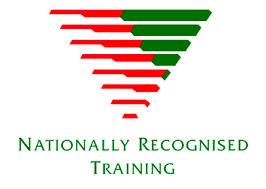Resources
Next month the Turnbull Government will be asking the Senate to support one of the most devastating attacks launched against poor and vulnerable Australians in recent memory. The Bill – entitled Social Security Legislation Amendment (Further Strengthening Job Seeker Compliance) Bill 2015 – proposes to give privately run job agencies unprecedented new powers to financially penalise unemployed and underemployed Australians. If passed the fines will come into effect on 1 July 2016.
Under the proposal, Australians receiving the dole can be fined 10% of their income support – increasing by 10% each day until they ‘re-engage’ – if they:
- Fail to sign a job plan at their first job agency appointment; or
- Are found by their job agency to have behaved inappropriately at an appointment (“inappropriate behaviour” is defined as acting in a manner “such that the purpose of the appointment is not achieved”); or
- Fail to attend a Work for the Dole or Training exercise without an excuse deemed reasonable by the job agency.
All fines (roughly $55.00) will be deducted immediately. Unemployed Australians who feel they have been unfairly fined will be required to go through Centrelink’s arduous appeals process to get their money back – a procedure that can take up to four months.
This means that even if an unemployed worker successfully appeals against a fine – and thousands do every year – they will still be forced to endure up to four months without a significant portion of their income support. As privately run job agencies can effectively impose these financial penalties on unemployed workers before having to provide any concrete proof, the Coalition’s proposal gives privately owned job agencies the power of life and death over unemployed workers.
With the dole already $391.00 below the poverty line according to the Melbourne Institute, for many unemployed workers a 10% deduction of their income support will place them in severe financial distress. If this proposal is passed next month, unemployed Australians will be just one unfair penalty away from extreme poverty and even homelessness
The dole has already been proven to be not enough to live on. A recent report showed that one in four people on the dole were forced to beg on the streets for more than a year, while 6 in 10 were required to approach a charity for help. Escaping this poverty-trap has become almost impossible for unemployed Australians – according to official government figures there are 11 job seekers competing for each vacancy, even more when you consider low-skill jobs.
With unemployment already a one-way ticket to poverty for many Australians, why is the Turnbull Government introducing a bill that will make it considerably harder for unemployed workers to survive?
To answer this question, it is necessary to understand the employment services industry. Comprised of for-profit and not-for-profit companies ranging from billion-dollar corporations like Max Employment to charities like the Salvation Army, the employment services industry has become a highly lucrative business.
Under the Coalition Government’s 4-year $6.8 billion Jobactive program, Government payments to employment services are tied to a variety of ‘jobseeker outcomes’. The most efficient way for job agencies to maximise outcome payments is to ensure that their unemployed ‘case-load’ are, at a bare minimum, compliant with appointments and activities. Clearly the employment services industry has a financial interest in obtaining increased powers to penalise the unemployed.
With these perverse financial incentives already firmly in play, there are a number of well-documented cases of job agencies bullying unemployed workers. Every day, the Australian Unemployed Workers’ Union receives new cases of Australians being bullied into unfair activities or appointments by money-hungry job agencies.
Even if unemployed workers are able to muster up the courage to demand that their rights be recognised, job agencies use the threat of sanctions to ensure compliance. With the continued failure of the Department of Employment to effectively regulate the industry and bring bullying job agencies into line, unemployed workers have nowhere to go. This has created a culture of fear and intimidation throughout the employment service industry.
By proposing that job agencies should be given new unprecedented powers to financially penalise unemployed workers, the Turnbull Government is sending a clear message to the employment services industry that these tactics are not only acceptable but should be intensified.
If you have been unfairly fined by your job agency, join the Australian Unemployed Workers’ Union legal challenge against this unfair compliance system by contacting them on contact@unemployedworkersunion.com. You can also participate in the AUWU’s Fight the Fine campaign against this bill. Visit the AUWU’s Facebook page for more info.
jobactive
From 1 July 2015 the Australian Government is introducing new employment services called jobactive. These services will replace Job Services Australia to help more job seekers find work and be more responsive to the needs of employers by preparing job seekers with the skills and attributes that employers are looking for.
Under jobactive, job seekers on income support will have access to tailored assistance from a jobactive provider based on their assessed needs. This could include help with looking for work, writing a resume and preparing for interviews, referrals to jobs and training that is suited to the skills that local employers need. People looking for work who are not receiving income support may also be eligible to receive some services under jobactive. For more information, job seekers can contact the National Customer Service Line on 1300 854 414.
Employers will be able to receive assistance from jobactive providers to help them find staff by screening and matching job seekers to available vacancies and by providing support once a new employee starts. These services are provided at no charge and employers may be able to receive financial help through a wage subsidy when they employ an eligible mature age, young, long term unemployed or Indigenous job seeker.
Restart
The Restart programme is a wage subsidy paid to employers to assist mature age people participate in the workplace at the same time as encouraging employers to expand their business and benefit from the wealth of experience mature age workers bring. Job seekers who are 50 years of age or older and have been unemployed and on income support* for six months or more can attract a Restart wage subsidy for an employer. Eligible mature age job seekers employed for 30 hours can attract the full rate of the Restart subsidy, and those employed between 15-29 hours per week can access a pro-rata amount.
As part of the ‘Growing Jobs and Small Business Package’ announced in the 2015 Budget, the Restart wage subsidy has been redesigned to make it easier for employers to access. From 1 November 2015, employers will be able to access the full subsidy of $10,000 (GST inclusive) over 12 months instead of the current two years, when they employ an eligible job seeker. The Restart wage subsidy will include up to $6,500 paid during a 12 month period and a bonus of up to $3,500 for employment which lasts the full 12 months. Employers already making use of Restart will also be able to transition to the new arrangements.
As part of these improvements, employers no longer need to wait until the end of a six month qualifying period to access their first payment. Payments can be made progressively, as frequently as fortnightly if needed. This will particularly help small business at the time when their hiring and training costs are greatest. Large employers who take on at least ten or more mature aged staff will also be able to negotiate the timing of payments to help meet the specific costs associated with hiring multiple staff, including lump-sum payments covering multiple employees. For more information: https://employment.gov.au/changes-restart-wage-subsidy
Employers will be able to contact a local jobactive provider to discuss the unique requirements for their business from 1 July 2015. For more information, employers can contact the Employer Hotline on 13 17 15 or visit the Department of Employment website at www.employment.gov.au/jobactive.
* Newstart Allowance; Parenting Payment; Disability Support Pension; Bereavement Allowance; Widow Allowance; Carer Payment; Special Benefit; Partner Service Pensioners; War Widows; Age Pension; Mature Age Partner Allowance; Wife Pension; Widows B Pension
Training provider Living Planit Pty Ltd (RTO ID 40552) is offering project management training subsidised by the NSW Government, Smart and Skilled Program
To find out if you are eligible, follow the link to the Smart & Skilled website. https://smartandskilled.nsw.gov.au/sands/qualification/BSB41513
This course:
- Is ideal if you live and / or work in Sydney
- No formal prerequisites
- 7 days face to face training, completed in class assessment
- Leads to the award of a nationally recognised qualification
- Is applicable in any industry
Scheduled dates in Sydney CBD: 27-28 April; 4-5 May; 11-13 May
Contact 02 9233 3233 or projects@livingplanit.com.au for more information
We are pleased to partner the NRMA on its new Living Well Navigator. This is a portal for the over 50’s built by the NRMA to provide advice for its 1.4 million members over the age of 50. We are proud to be the job board for mature age on the portal.
Below is the link.
https://www.mynrma.com.au/living-well-navigator/work-and-volunteering.htm
The Restart program is a Federal Government initiative that provides 4 payments totalling $10,000 to employers that recruit jobseekers over the age of 50 who meet the subsidy criteria.
Below is a link to the website with relevant information.
Open Courses: Providers of online and distance education courses
Swinburne University: Mature age student information
Latrobe University: Mature age student course guide
University of W.A: Mature age courses/entry information
University of Sydney: Mature age entry scheme
Interviews are nerve racking at the best of times, however if you are an older jobseeker and haven’t had an interview for a while or had quite a few knock backs (which is often the case with older workers) then they can be simply terrifying. It goes without saying that you won’t get the best in an interview situation from someone who is terrified.
Continue reading »








